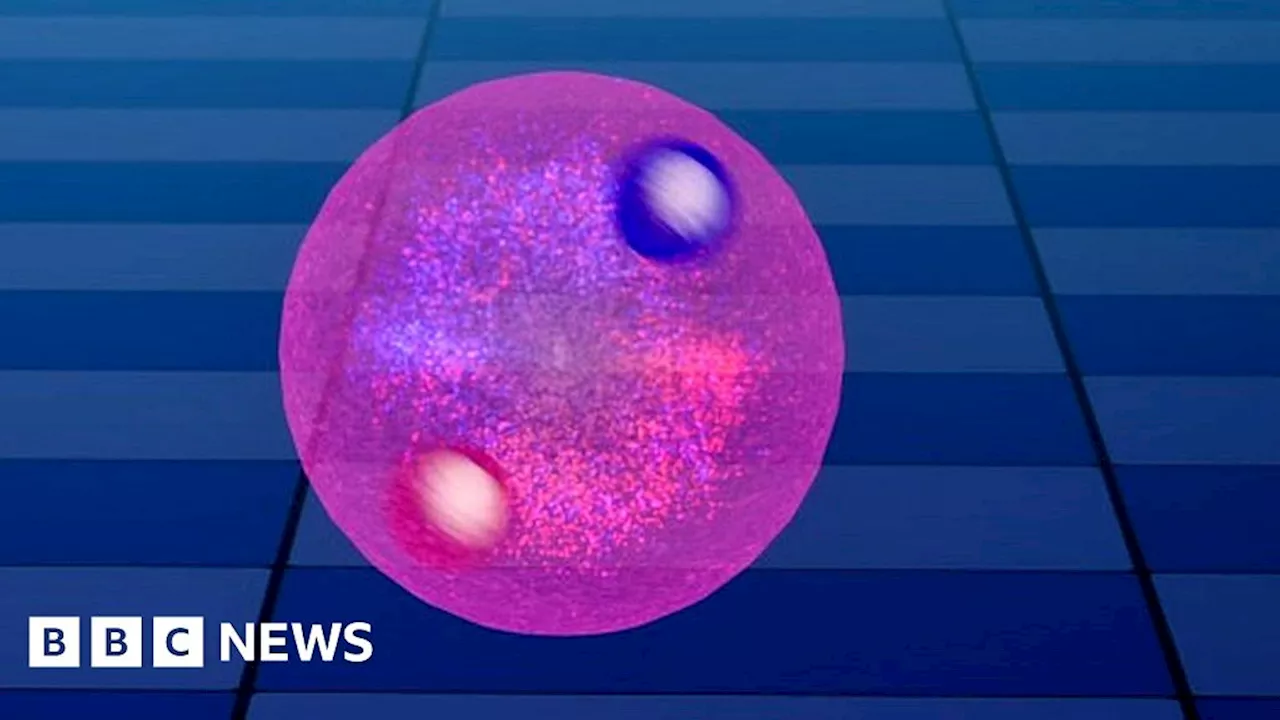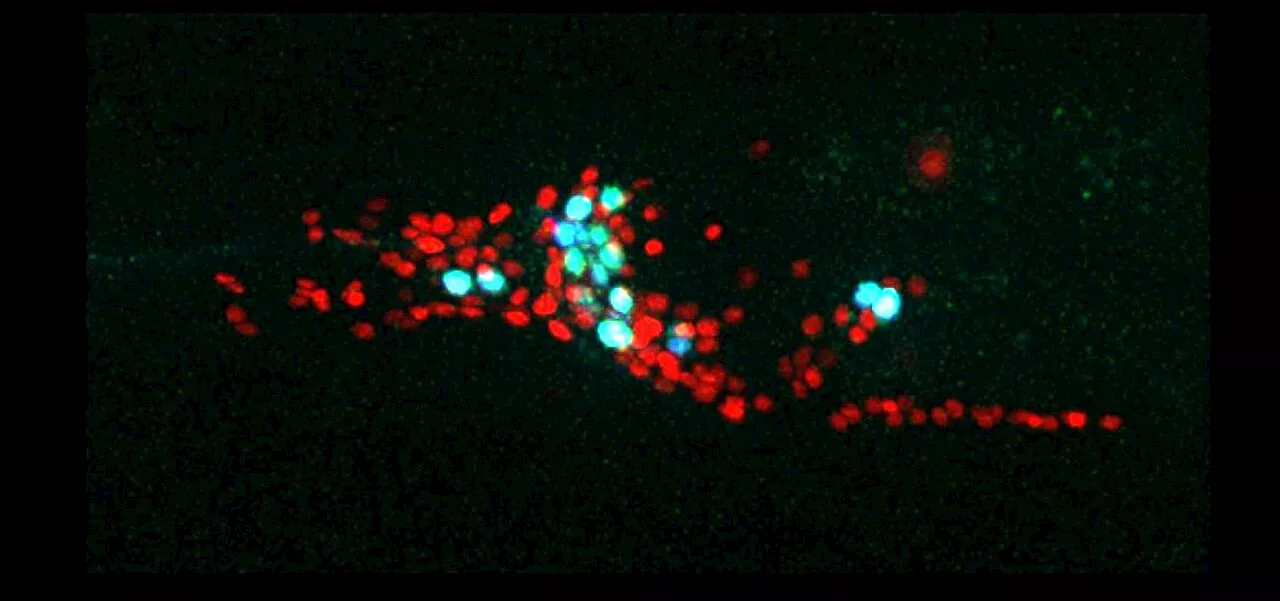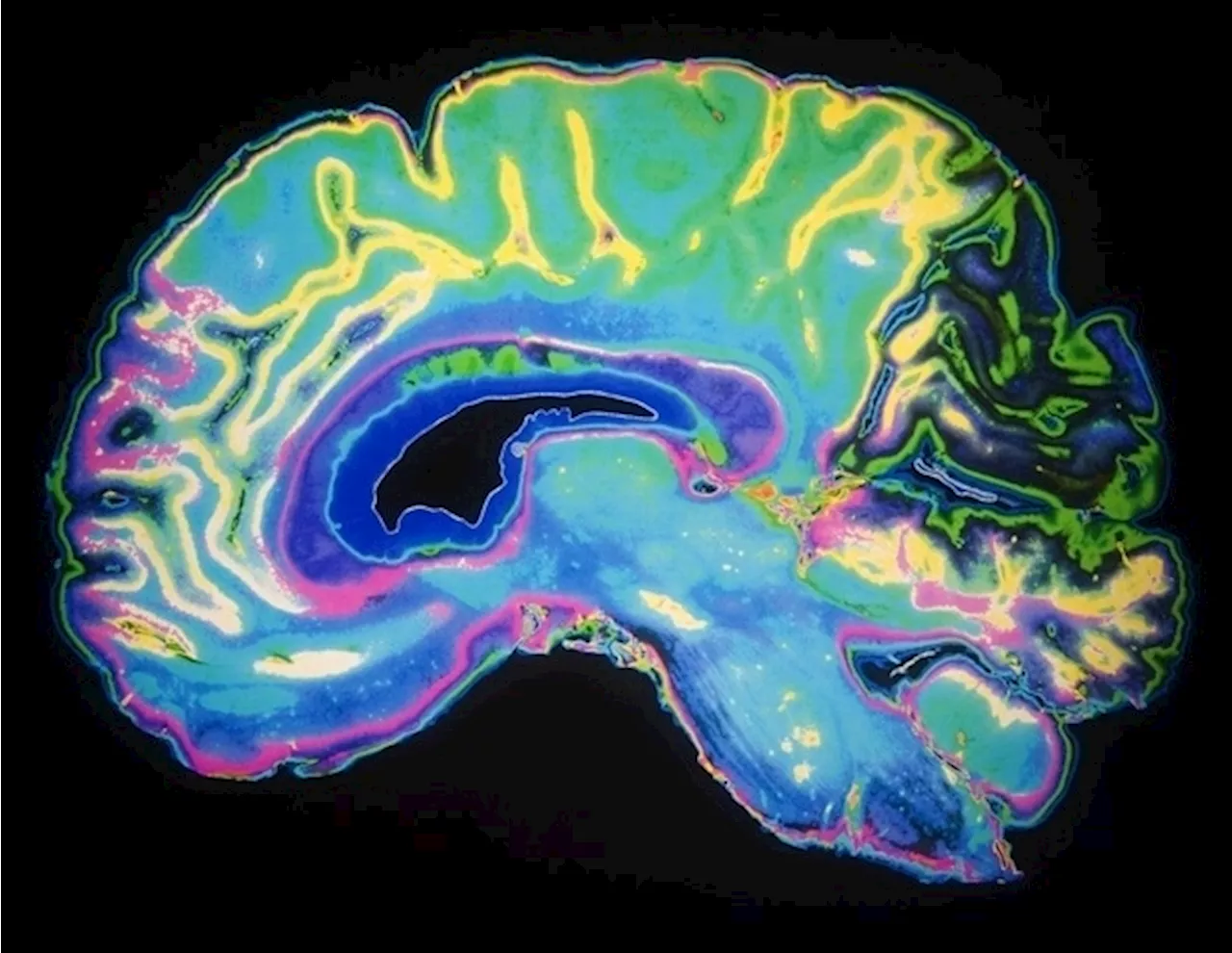Using novel genetic and genomic tools, researchers at the Icahn School of Medicine at Mount Sinai have shed light on the role of immune cells called macrophages in lipid-rich tissues like the brain, advancing our understanding of Alzheimer's and other diseases.
Mar 21 2024Mount Sinai Health System Using novel genetic and genomic tools, researchers at the Icahn School of Medicine at Mount Sinai have shed light on the role of immune cells called macrophages in lipid-rich tissues like the brain, advancing our understanding of Alzheimer's and other diseases. The study, published in the March 6 online issue of Nature Communications , represents a step forward in understanding immune cell regulation and its impact on disease progression.
They identified two influential genes, BHLHE40 and BHLHE41, and used advanced gene editing technology to deactivate them in lab-grown cells. These cells were then transformed into microglia. The resulting microglia lacking BHLHE40 and BHLHE41 resembled disease-associated microglia observed in Alzheimer's disease, showing improved ability to clear cholesterol-rich waste. Confirmation came from experiments on cultured human peripheral macrophages and microglia from mice lacking these genes.
Alison M. Goate, DPhil, senior study author, the Jean C. and James W. Crystal Professor and Chair of Genetics and Genomic Sciences at Icahn Mount Sinai "We want to see how these cells, particularly those without the two genes, impact Alzheimer's-related phenotypes in both dish and mouse models. We predict that in mice, microglia without BHLHE40 and 41 will clear away beta-amyloid plaques more effectively than control microglia that have normal levels of BHLHE40 and 41. Also, we're exploring how lack of these genes in the brain immune cells affect other types of cells in the brain such as neurons and astrocytes," says Dr.
United Kingdom Latest News, United Kingdom Headlines
Similar News:You can also read news stories similar to this one that we have collected from other news sources.
 Scientists Discover How Whales Produce Haunting SongsScientists have figured out how some of the largest whales in the ocean produce their haunting and complex songs, which are crucial for their survival and mating. The study was led by Prof Coen Elemans of the University of Southern Denmark.
Scientists Discover How Whales Produce Haunting SongsScientists have figured out how some of the largest whales in the ocean produce their haunting and complex songs, which are crucial for their survival and mating. The study was led by Prof Coen Elemans of the University of Southern Denmark.
Read more »
 Antimatter: Scientists freeze positronium atoms with lasersPositronium has the potential to revolutionise physics but the elusive substance had been too hot to handle.
Antimatter: Scientists freeze positronium atoms with lasersPositronium has the potential to revolutionise physics but the elusive substance had been too hot to handle.
Read more »
 Researchers develop promising recombinant flu vaccine using nanoliposome technologyRecombinant protein vaccines, like the Novavax vaccine used to fight COVID-19, offer several advantages over conventional vaccines.
Researchers develop promising recombinant flu vaccine using nanoliposome technologyRecombinant protein vaccines, like the Novavax vaccine used to fight COVID-19, offer several advantages over conventional vaccines.
Read more »
 MalwareBytes recommends using USB condoms with USB vibrators to avoid nasty infectionsChris' gaming experiences go back to the mid-nineties when he conned his parents into buying an 'educational PC' that was conveniently overpowered to play Doom and Tie Fighter. He developed a love of extreme overclocking that destroyed his savings despite the cheaper hardware on offer via his job at a PC store.
MalwareBytes recommends using USB condoms with USB vibrators to avoid nasty infectionsChris' gaming experiences go back to the mid-nineties when he conned his parents into buying an 'educational PC' that was conveniently overpowered to play Doom and Tie Fighter. He developed a love of extreme overclocking that destroyed his savings despite the cheaper hardware on offer via his job at a PC store.
Read more »
 Scientists demonstrate how individual differences in 'whole-brain' activity are generated in roundwormsJoint research led by Yu Toyoshima and Yuichi Iino of the University of Tokyo has demonstrated individual differences in, and successfully extracted commonalities from, the whole-brain activity of roundworms.
Scientists demonstrate how individual differences in 'whole-brain' activity are generated in roundwormsJoint research led by Yu Toyoshima and Yuichi Iino of the University of Tokyo has demonstrated individual differences in, and successfully extracted commonalities from, the whole-brain activity of roundworms.
Read more »
 Meghan Markle 'using Princess Diana's legacy' to promote new business, claimsMeghan Markle unveiled her new lifestyle brand American Riviera Orchard on Thursday.
Meghan Markle 'using Princess Diana's legacy' to promote new business, claimsMeghan Markle unveiled her new lifestyle brand American Riviera Orchard on Thursday.
Read more »
